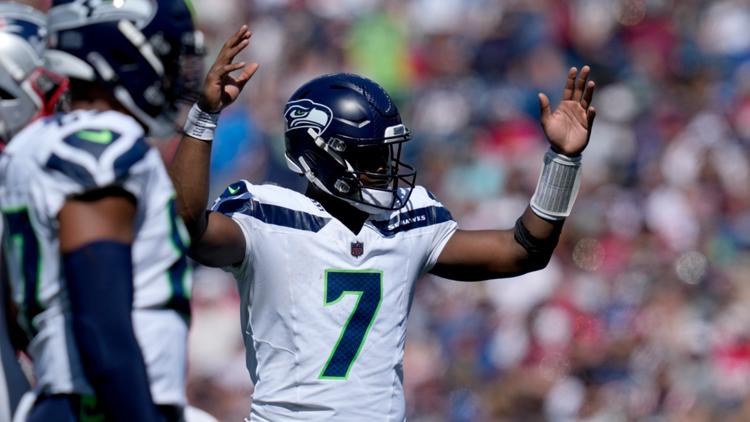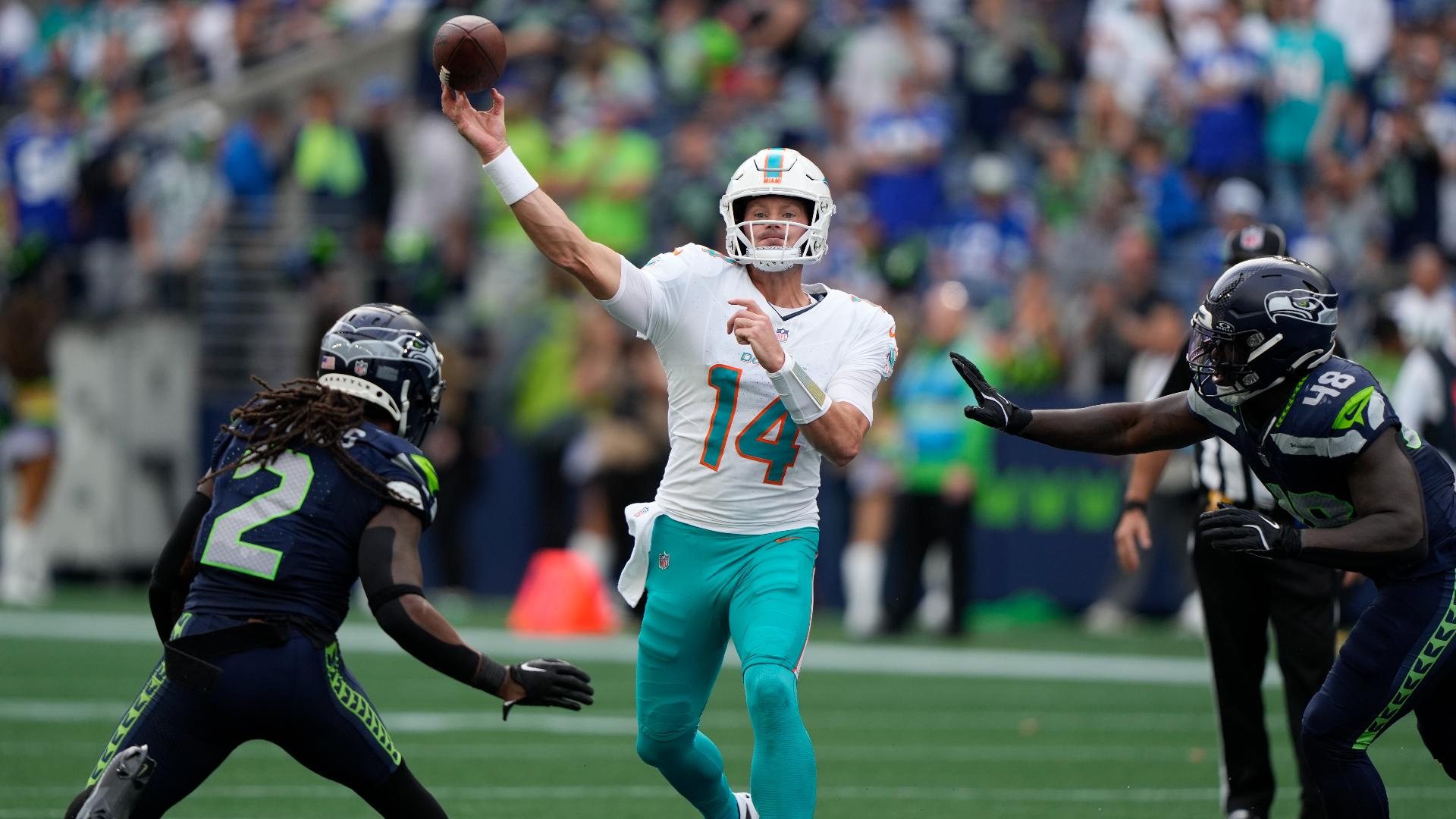RENTON, Wash. — Even though the Seahawks are 3-0, they're still not perfect, but they've developed the perfect leadership style to combat any issues that crop up along the way.
"For me, I'm not really a negative type of guy. I don't want to beat guys up on the sidelines or have them thinking about things that they shouldn't," Seahawks quarterback Geno Smith said. "So, instead of me taking a negative approach, I take the positive approach. I try to uplift them and give them words of encouragement."
Smith has taken this approach on more than one occasion, seen talking to his entire offense throughout lulls in the game.
"I'm the elder spokesman on the team now, and I just try to be there for the guys. Think about being the thermometer in the huddle. If it's getting too hot in there, cool them down, and if it is too cool, then I need to bring that energy that we need to the huddle," Smith said. "Last week we hit a lull somewhere around the second quarter and I just felt like it's natural for guys to start to press, to start to over-try and try to make plays. So I just wanted to remind the guys that just do the little things, not get caught up into the emotions so much of the game and we need to get going. That was the key thing. We need to get some stuff going. So whatever I can do, whether that's vocal or just doing it by example, it is what I'll do to make sure these guys are ready."
Ten-year veteran wide receiver Tyler Lockett said this particular tactic is helpful, and Smith executing his speeches about as efficiently as his passing percentage on the field.
"He does a great job of knowing when to talk and when not to talk because sometimes you don't want to overly talk to where people are like, 'oh, we heard this before,' but I think he's doing a tremendous job of just being a leader of this team."
Lockett said Smith's encouraging demeanor speaks to the demands of today's athletes.
"With the new generation, it's more of being able to have player coaches, more of being able to meet them where they're at, kind of talk to them, build them up to a sense where they feel good about theyself (sic), rather than in the old times where you might hear a lot of different things to where you have to tell people like, 'ay man, take the message, not the tone,'" Lockett said.
Prior generations used "tough love," which would often border verbal or physical abuse. Credit the current generation for speaking out against this type of coaching behavior and demanding fair treatment while also wanting constructive criticism for their work. Lockett, 31, understands this balance.
"A lot of people were just kind of like talking in a way that they were like, 'ay, man it's good, you're gonna make the next one, like if you need to focus on catching after practice, focus on catching jugs or whatever you need, we right here for you,' it's a lot different than the past, so I do think it helps with this new generation coming up," he said.



